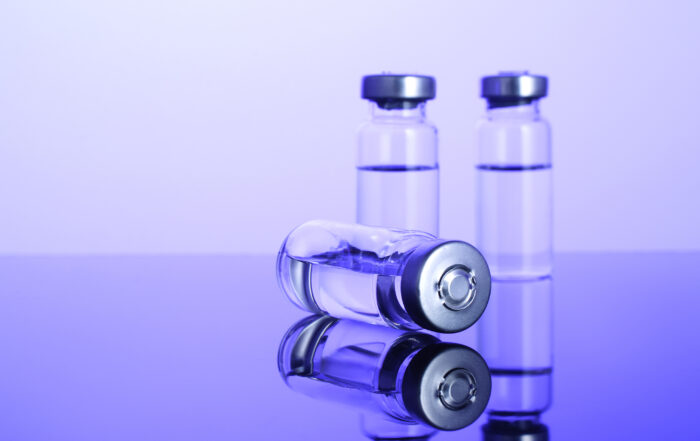
Letter to the Editor
By Karen Quandt
After reading the article, “Senate Bill and FTC 6(b) Study Turn the Heat on Pharmacy Benefit Managers Amid Drug Pricing Concerns,” by Tiffany Jang & David Shotlander, I thought about what I recently learned about the drug Zolgensma, approved by FDA in May 2019 as a gene therapy to treat Spinal Muscular Atrophy (SMA) in children less than two years old. The gene therapy is a one-time intravenous infusion treatment that may eventually become the standard treatment for SMA.[1] In 2019, it was the most expensive drug the world had ever seen at $2.125 million.[2]
I recently attended a Newborn Screening Bootcamp hosted by the EveryLife Foundation for Rare Diseases. At the conference, we were told by a genetic counselor that there are 428 fundraisers on one online fundraising platform, created by families that are raising funds for their children with SMA, and that many of these families are seeking donations for the gene therapy, Zolgensma, and associated medical costs with SMA.
Access to a rare disease gene therapy is not a question of availability, but of cost. Drug companies set their own prices when selling the products they have created. Without any competition for a gene therapy like Zolgensma, these companies can set whatever price they want.[3] The price tag of $2.125 million makes the drug unobtainable for most families. Additionally, insurance companies can make it difficult for families to access these expensive treatments. Prior authorization (PA) is a common health insurance practice to ensure that the treatment is medically necessary, and it continues to frustrate patients.[4]
Zynteglo ($2.8 million) and Skysona ($3 million) are gene therapies approved by FDA in 2022. Along with Zolgensma, they are the three most expensive drugs the world has ever seen.[5] There are hundreds of gene therapies currently being developed and in clinical trials.[6] When any of these therapies are FDA-approved, families will not be able to afford the multimillion-dollar price tags. Will there be thousands of families creating online fundraisers for these gene therapy medicines?
To avoid this possibility, we need new reimbursement models that can ensure appropriate patient access to much-needed treatments. One approach suggested by Senator Cassidy from Louisiana is for Medicaid, or some other government program, to pay for gene therapies, so commercial payers would not have to cover them. Instead, it would be fully funded by public funds. Society, as a whole, pays for these therapies as opposed to the insurance pool to which the patient belongs at the time the therapy is given.[7]
Gene therapies are potentially curative for many terrible rare diseases. Rare disease patients need a way to pay for these medicines.
[1] Carmen Fookes, “Why is Zolgensma so Expensive?” Sept. 5, 2022, https://www.drugs.com/medical-answers/zolgensma-expensive-3552644/ (accessed Nov. 16, 2022).
[2] Christopher Rowland, “The FDA Approves a Gene Therapy that is the Most Expensive Drug in the World.” The Washington Post, May 24, 2019,
[3] Julia Hawley, “How Pharmaceutical Companies Prices Their Drugs,” Sept. 30, 2022, https://www.investopedia.com/articles/investing/020316/how-pharmaceutical-companies-price-their-drugs.asp, (accessed Nov. 16, 2022).
[4] Allison Inserro, “How Prior Authorization Can Impact Patients with Rare Disease.” Feb. 28, 2022, The American Journal of Managed Care, Feb. 28, 2022,
https://www.ajmc.com/view/how-prior-authorization-can-impact-patients-with-rare-disease.
[5] Leigh Ann Anderson, “10 Most Expensive Drugs in the US.” Oct. 17, 2022, https://www.drugs.com/slideshow/top-10-most-expensive-drugs-1274 (accessed Nov. 17, 2022).
[6] Press Release, “FDA Continues Strong Support of Innovation in Development of Gene Therapy Products.” U.S. Food and Drug Administration, Jan. 28, 2020, https://www.fda.gov/news-events/press-announcements/fda-continues-strong-support-innovation-development-gene-therapy-products.
[7] Bill Cassidy, “How Will We Pay for the Coming Generation of Potentially Curative Gene Therapies?” June 12, 2019, https://www.statnews.com/2019/06/12/paying-for-coming-generation-gene-therapies/ (accessed Nov. 17, 2022).
Update Magazine
Winter 2022

 KAREN QUANDT is a registered nurse and an advocate for people with rare disease. Quandt has over thirty years of nursing experience in many different areas: the US Army Nurse Corps, inpatient pediatrics, pediatric homecare, school nursing, and caring for her son who had a rare and fatal neurodegenerative.
KAREN QUANDT is a registered nurse and an advocate for people with rare disease. Quandt has over thirty years of nursing experience in many different areas: the US Army Nurse Corps, inpatient pediatrics, pediatric homecare, school nursing, and caring for her son who had a rare and fatal neurodegenerative.




